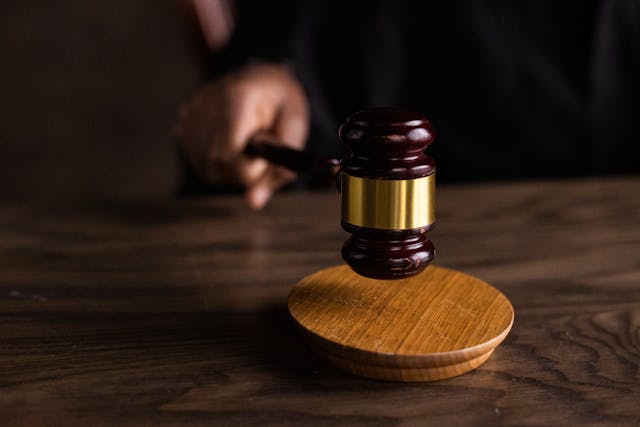A subpoena in a Nevada personal injury case is a legal document that requires a person to appear for testimony or produce evidence and documents relevant to your claim. Navigating subpoenas can be complicated, with strict procedures and deadlines. Any misstep may result in evidence being excluded or a witness being dismissed.
That’s why working with an experienced Las Vegas personal injury lawyer is critical. They know Nevada’s rules and court requirements, ensuring subpoenas are used effectively to support your case. It’s also helpful for injury victims to understand what a subpoena is, why it matters, and how it works in personal injury cases.

40+ Years of ExperienceMillions RecoveredNo Win No Fee
How to Subpoena Witnesses in a Nevada Injury Case
Learn how to subpoena witnesses in a Nevada personal injury case, including the steps, necessary forms, court procedures, and tips to secure crucial testimony and evidence
What Is a Subpoena?
A subpoena is a legal order requiring a person to:
- Appear in court,
- Attend a deposition, or
- Produce specific records or documents.
In Nevada personal injury cases, subpoenas are essential for obtaining testimony or records that witnesses or businesses might otherwise refuse to provide voluntarily.
Why Subpoenas Are Necessary in Personal Injury Cases
Here’s why subpoenas can play such a big role in personal injury cases:
Securing Necessary Testimony
Sometimes witnesses won’t appear for trial or a deposition without being told they have no choice. A subpoena compels them to show up and tell what they know, which may back up your version of events.
Accessing Crucial Records
Subpoenas can demand records such as:
- Accident reports
- Medical records
- Employment or insurance documents
- Surveillance footage
- Phone or electronic records
These documents can be essential in proving that someone else caused your injuries.
Preserving Evidence
Court orders ensure that evidence is preserved and not destroyed. It also makes sure the plaintiff gets the evidence they need on a set timeline.
When you work with an experienced lawyer, subpoenas can be an incredibly powerful aspect of a successful injury claim.
Steps to Subpoena a Witness
Sending a subpoena ensures witnesses and evidence show up when you need them. Each step must be completed to ensure your subpoena is valid and enforceable.
1. Find the Right Form
First, figure out which court your case is in – justice court, district court, small claims, or federal court – then get the correct subpoena form.
2. Complete the Form (Don’t Sign It Yet)
Fill in all the details of the form. This usually includes:
- The name of the court handling your injury case
- Your case title and number
- The witness’s full name, address, and phone number
- Interview or testimony date, time, and location
- Any documents or evidence to be produced
- Required notice about witness appearance fees and warnings about penalties for refusing
3. Take It to the Court Clerk
The clerk inspects the form for accuracy and signs it to make it official. They don’t advise on legal wide or your case’s strategy, only that the form is complete and correct.
4. Serve the Subpoena
A disinterested adult (someone not part of your case) or a certified process server has to hand-deliver the subpoena. Following the rules is critical, as if you don’t, the subpoena won’t be enforceable.
5. Include Witness Fees and Mileage
Nevada law requires that all subpoenas include:
- $25 daily appearance fee
- Mileage reimbursement at the federal standard rate
Reference: NRS 50.225 – Fees and Expenses of Witnesses
6. File Proof of Service
Once served, file the “proof of service” with the court. This lets the judge know when and how the subpoena got to the witness and is required to show that service was valid.
Why Working With a Las Vegas Personal Injury Lawyer Matters
When you’re filing a personal injury claim, your best bet is to work with an experienced lawyer who can help you build your case and subpoena all necessary witnesses and evidence. Let us help. Subpoenas can be complex, but they are vital for:
- Gathering testimony from key witnesses
- Obtaining essential records and evidence
- Preserving information that strengthens your claim
A skilled Las Vegas personal injury lawyer ensures subpoenas are properly prepared, served, and enforced, giving your case the best chance for a successful outcome. Contact Valiente Mott Injury Attorneys online or call (702) 919-6768 today to schedule a free consultation.

